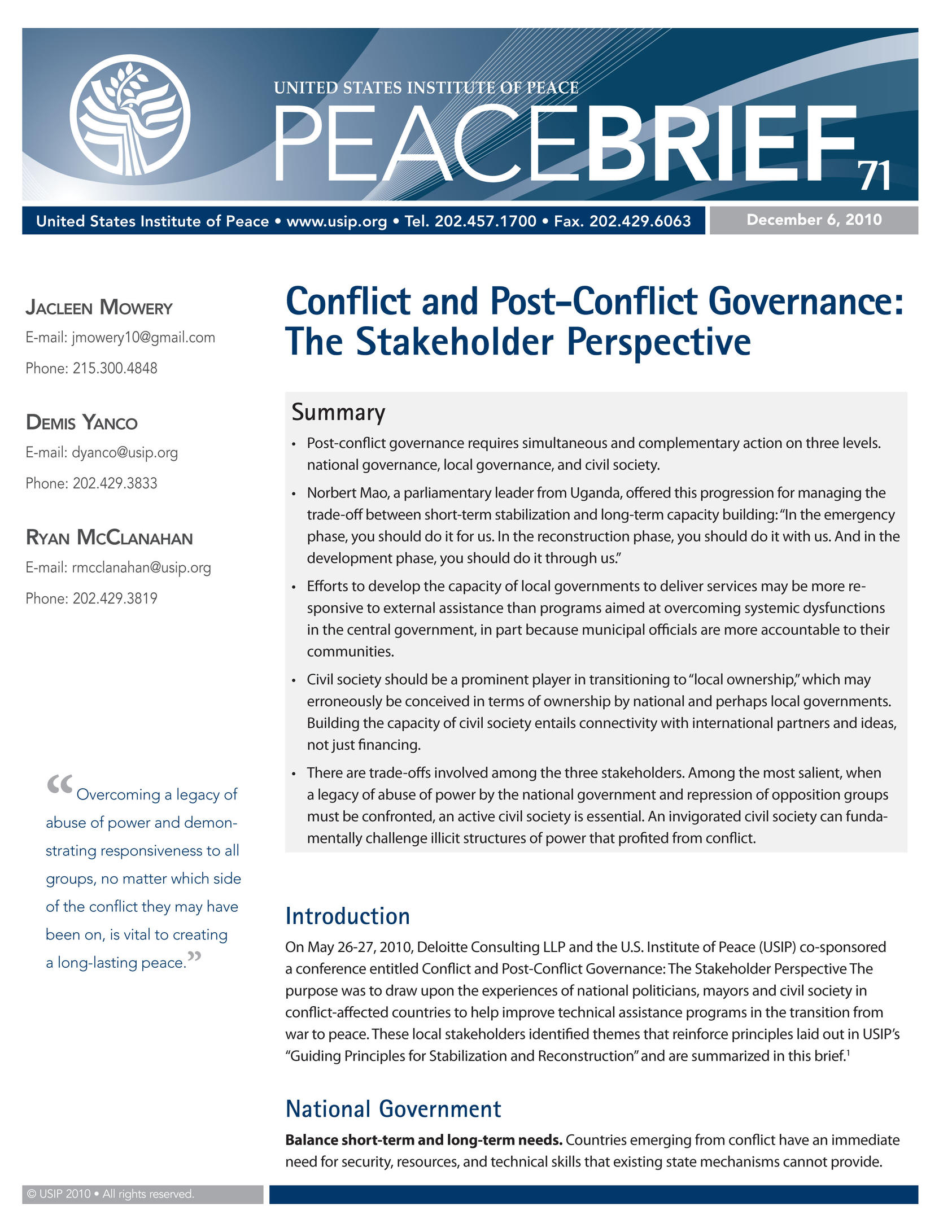On May 26-27, 2010, Deloitte Consulting LLP and USIP co-sponsored a conference entitled Conflict and Post-Conflict Governance: The Stakeholder Perspective. The purpose was to draw upon the experiences of national politicians, mayors and civil society in conflict-affected countries to help improve technical assistance programs in the transition from war to peace.

Summary
- Post-conflict governance requires simultaneous and complementary action on three levels: national governance, local governance, and civil society.
- Norbert Mao, a parliamentary leader from Uganda, offered this progression for managing the trade-off between short-term stabilization and long-term capacity building: “In the emergency phase, you should do it for us. In the reconstruction phase, you should do it with us. And in the development phase, you should do it through us.”
- Efforts to develop the capacity of local governments to deliver services may be more responsive to external assistance than programs aimed at overcoming systemic dysfunctions in the central government, in part because municipal officials are more accountable to their communities.
- Civil society should be a prominent player in transitioning to “local ownership,” which may • erroneously be conceived in terms of ownership by national and perhaps local governments. Building the capacity of civil society entails connectivity with international partners and ideas, not just financing.
- There are trade-offs involved among the three stakeholders. Among the most salient, when a legacy of abuse of power by the national government and repression of opposition groups must be confronted, an active civil society is essential. An invigorated civil society can fundamentally challenge illicit structures of power that profited from conflict.
About this Brief
On May 26-27, 2010, Deloitte Consulting LLP and USIP co-sponsored a conference entitled Conflict and Post-Conflict Governance: The Stakeholder Perspective. The purpose was to draw upon the experiences of national politicians, mayors and civil society in conflict-affected countries to help improve technical assistance programs in the transition from war to peace. The authors of this Peace Brief served as rapporteurs at the conference.